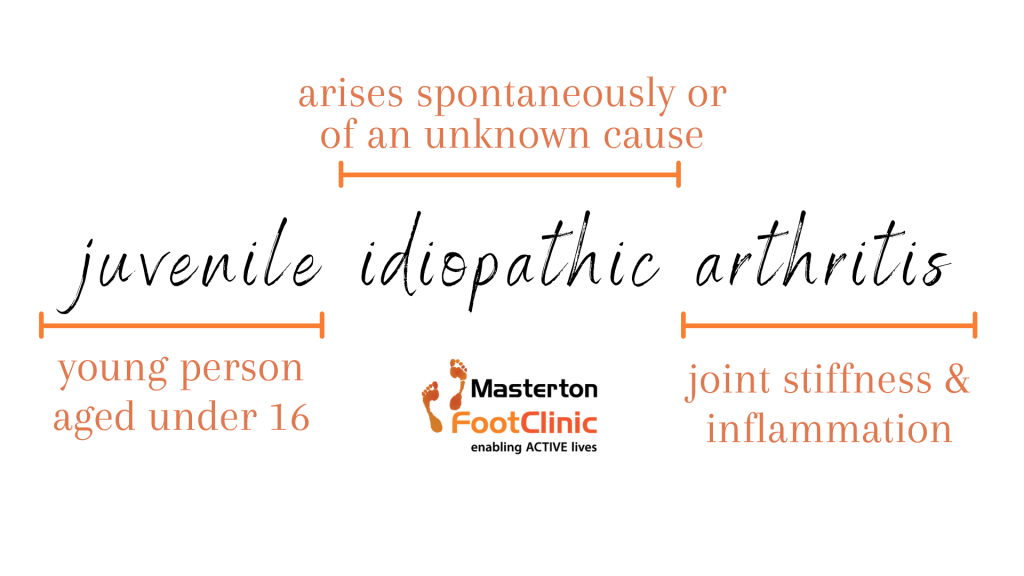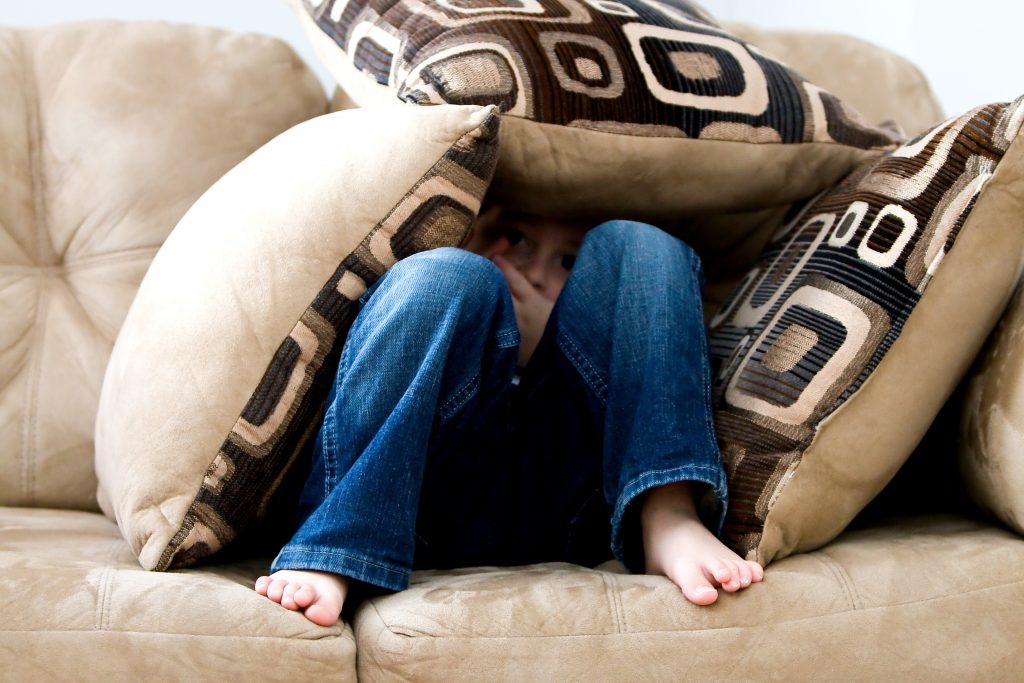While arthritis is often associated with older adults, children can have arthritis too. When a child has arthritis and is aged below 16 years, this is known as Juvenile Idiopathic Arthritis (JIA). Given that the early years are very important for a child’s growth and maturity, JIA can negatively (and potentially permanently) interfere with a child’s growth and bone development. If you’re worried about arthritis in your child, whether or not they’ve been diagnosed, you’ve come to the right place.

Arthritis In Children: Causes & Symptoms
JIA is caused by the body’s immune system attacking its own cells, much like other types of arthritis such as rheumatoid arthritis. It is not currently known why JIA develops (hence the term ‘idiopathic’, meaning a spontaneous or unknown cause) but there is evidence to suggest that genetic history may make you more vulnerable. Even so, JIA is not considered to be a hereditary disease. Certain environmental factors (like viruses or bacteria) can also trigger the disease to activate.
There are many different types of JIA, each with different symptoms, prognosis and progression. Some of these types can be outgrown so the symptoms do not continue into adulthood. The most common types include:
- Systemic – meaning that it affects the whole body
- Oligoarthritis – which has four or fewer joints affected, and polyarticular – which has five or more joints affected
- Psoriatic – involves swollen joints resulting from psoriasis, an immune disease where healthy skin cells are mistakenly attacked by the body
- Enthesitis-related arthritis (ERA) – involves inflammation of the tendons and tissues near the joints, as opposed to the joints themselves
Symptoms of Arthritis In Children
Most of the types of arthritis in kids include flare-ups of symptoms, where kids alternate periods of being symptomatic with being asymptomatic. This can be accompanied by common symptoms such as:

- Swollen, tender, stiff or warm joints
- Joint pain, which tends to be worse in the morning or after rest
- Fatigue, tiredness or lethargy
- High fever and rashes (particularly in systemic JIA)
How Masterton Foot Clinic Helps Children Affected By Arthritis
While there’s no cure for juvenile idiopathic arthritis, medical treatments focus on limiting the symptoms during flare-ups to help children live a normal life. This is a multidisciplinary healthcare team approach, achieved with physical therapy, medications and, in rare cases, surgery.
As podiatrists, our goal is to help children remain mobile and active while improving or maintaining their muscle and joint function. As kids love to run and play, it’s important to help them keep up with their peers and participate in social activities wherever possible.
Every child under our care has a tailored treatment plan specific to their symptoms and how their arthritis is affecting them during and in between flares. We’ll help with:
- Monitoring your child’s structural alignment in their feet and legs, which can degrade as a result of swelling in the joints or tendons, and which may not return to normal when the swelling dissipates
- Treating any gait (movement) changes caused by alignment problems
- Creating 3D-scanned custom foot orthotics to help improve stability, comfort and offload painful joints – or any deformities or prominences that may result
- Recommending shoes to help your kids feel comfortable and promote movement with minimal pain
- Prescribing stretching and strengthening exercises, working alongside your physical therapist. Evidence suggests that children with JIA should still participate in 60 minutes of exercise per day, the same as other children [1]
FAQS
Is Juvenile Idiopathic Arthritis a lifelong condition?
Juvenile Idiopathic Arthritis is a chronic condition that can persist throughout your lifetime. However, the disease activity and symptoms can vary over time. With early diagnosis, appropriate treatment, and ongoing management, many children with JIA can lead active and fulfilling lives. Regular medical care, adherence to treatment plans, and a multidisciplinary approach involving healthcare professionals such as rheumatologists, podiatrists and physical therapists can help manage symptoms and minimise the impact of the disease.
What are the treatment options for Juvenile Idiopathic Arthritis?
The treatment options for Juvenile Idiopathic Arthritis aim to reduce inflammation, manage pain, maintain joint function, and prevent long-term complications. The treatment plan may include a combination of medications such as nonsteroidal anti-inflammatory drugs (NSAIDs), disease-modifying antirheumatic drugs (DMARDs), biologic agents, and corticosteroids from your doctor, paired with the foot-related treatment options we’ve described above to help support your child’s mobility, independence and their quality of life.
Can Juvenile Idiopathic Arthritis affect other parts of the body besides the joints?
Yes, Juvenile Idiopathic Arthritis can affect other parts of the body besides the joints of the feet and legs. Depending on the subtype of JIA, it can involve various organs, such as the eyes, skin, heart, lungs, and gastrointestinal tract Other joints throughout the body can also be affected.
Can Juvenile Idiopathic Arthritis cause growth problems?
In some cases, Juvenile Idiopathic Arthritis can affect growth, especially if the disease affects the growth plates or causes chronic inflammation. It is important for children with JIA to receive appropriate medical care, including regular monitoring of growth, and to follow the treatment plan provided by their healthcare team. Early diagnosis, timely treatment, and close follow-up can help minimise any potential growth problems associated with JIA.
Can physical activity and exercise help with Juvenile Idiopathic Arthritis?
Yes, physical activity and exercise are generally beneficial for children with Juvenile Idiopathic Arthritis. Regular exercise can help improve joint mobility, maintain muscle strength, and promote overall physical well-being. Your podiatrist can help develop an individualised exercise program that takes into account the specific needs and limitations of the child.
Are there any dietary changes that can help manage Juvenile Idiopathic Arthritis?
While there is no specific diet that has been proven to cure or treat Juvenile Idiopathic Arthritis, maintaining a well-balanced and healthy diet is important for overall health and well-being. Some children with JIA may find that certain foods or food groups can trigger or worsen symptoms. Keeping a food diary and working with a healthcare professional, such as a registered dietitian, can help identify any potential dietary triggers and make appropriate modifications to the diet.
Can Juvenile Idiopathic Arthritis go into remission?
Yes, Juvenile Idiopathic Arthritis can go into remission, where the disease activity and symptoms are significantly reduced or absent. Remission can be achieved with appropriate treatment and management strategies. However, it’s important to note that remission can vary from person to person, and ongoing monitoring and follow-up with healthcare professionals is necessary to assess disease activity and adjust the treatment plan accordingly.
